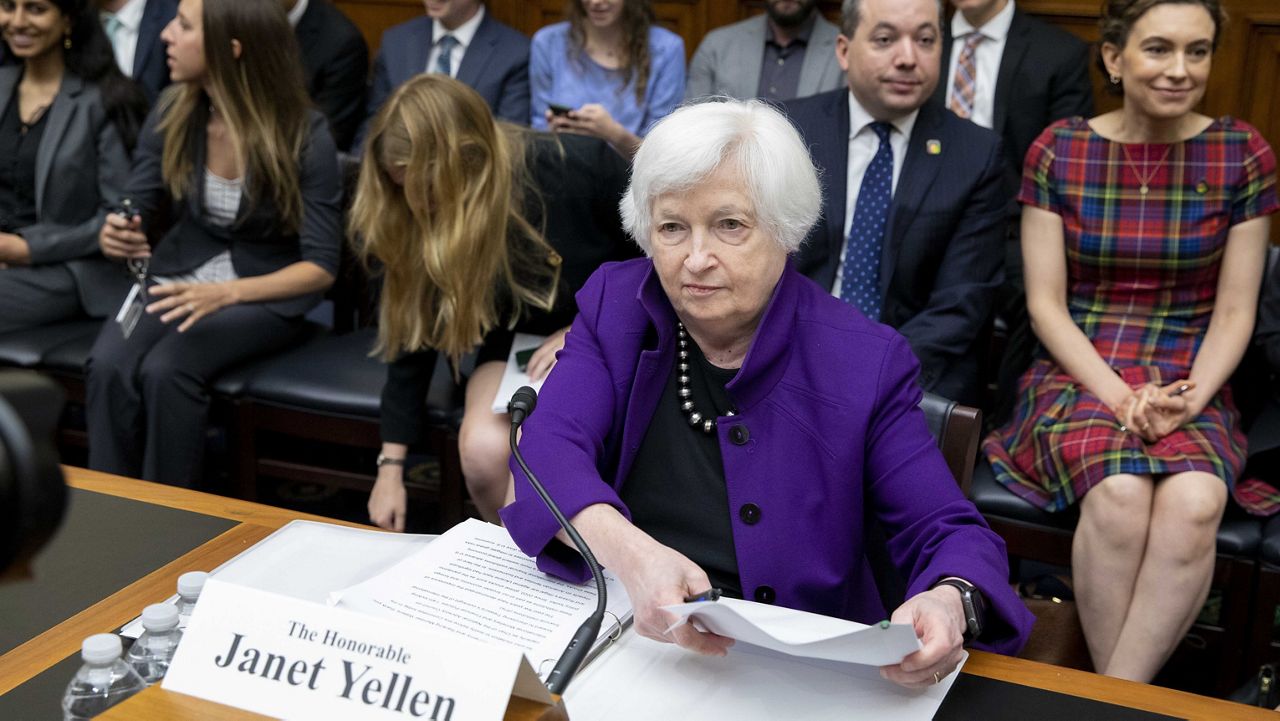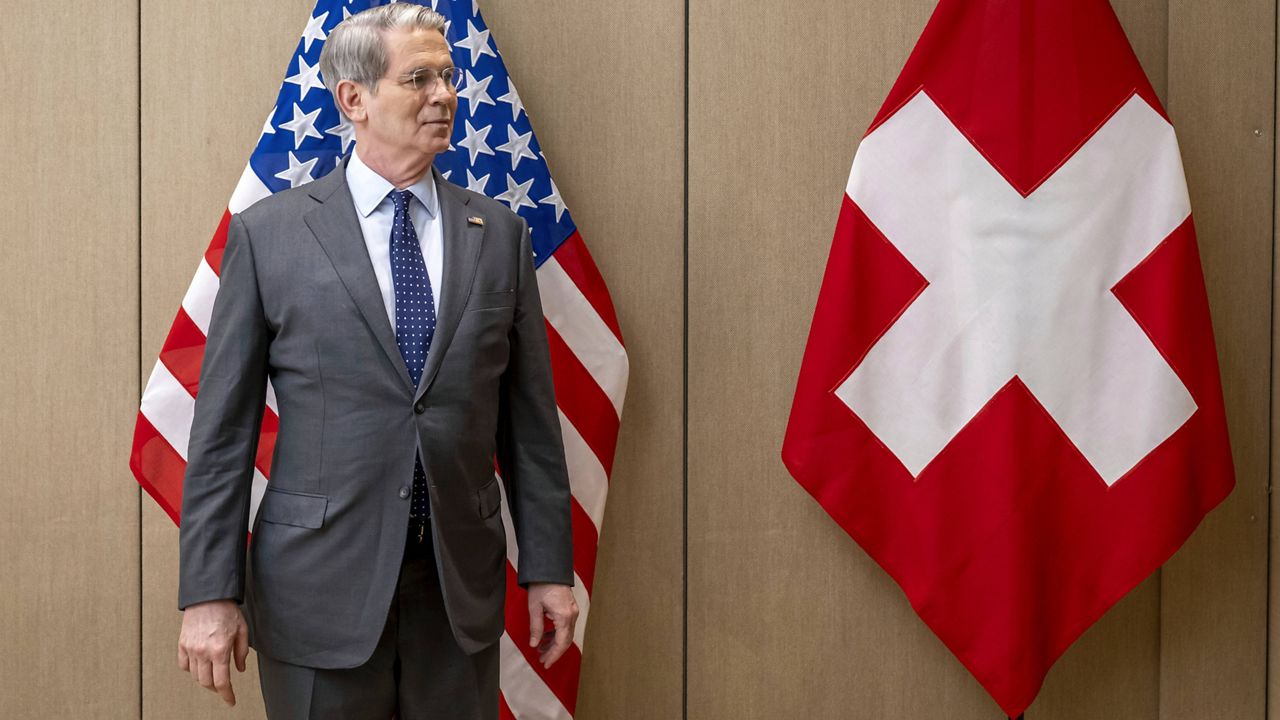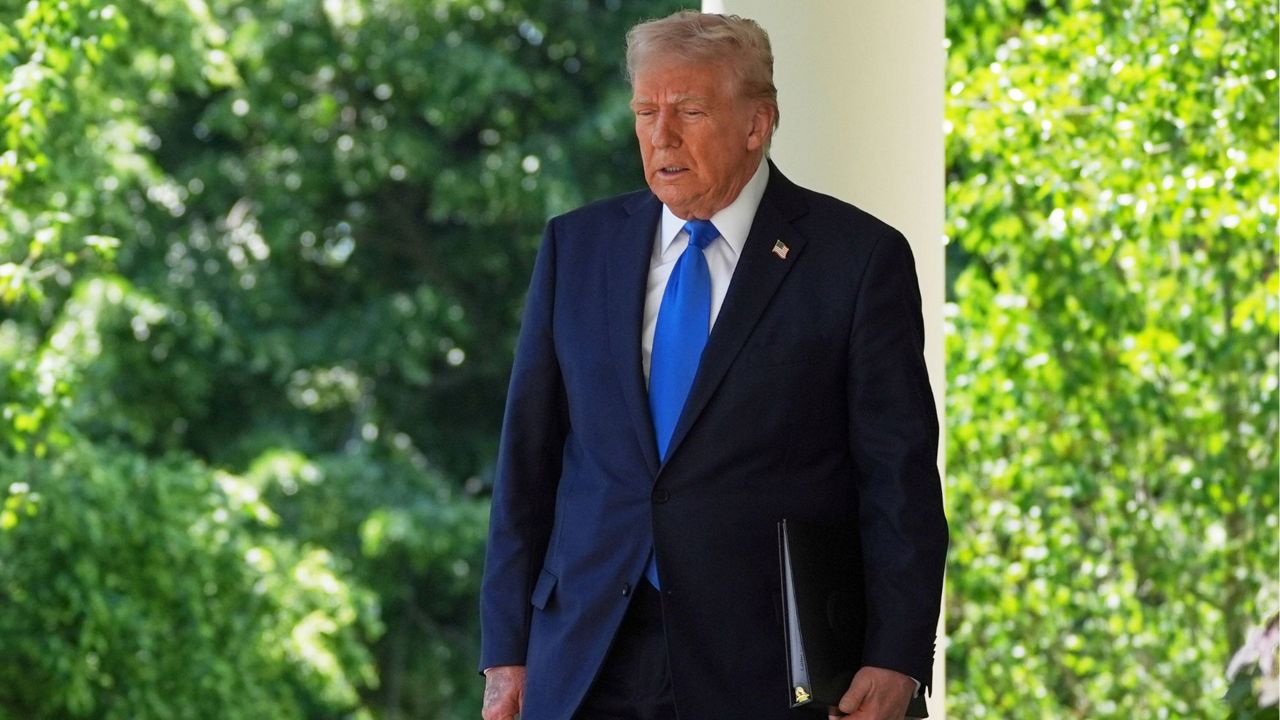U.S. Treasury Secretary Janet Yellen on Tuesday stressed the importance of United States’ role in international financial institutions while facing tough questions from lawmakers in a House committee hearing focused largely on China’s growing influence.
“The past few years have demonstrated the importance of these institutions as part of our broader economic and foreign policy tool kit,” Yellen said, noting that the International Monetary Fund approved a $15 billion economic program for Ukraine amid Russia’s invasion.
The comments came at a House Financial Services Committee hearing on Tuesday as part of an annual requirement for the treasury secretary to update lawmakers on the state of the international financial system. Yellen used her opening statement to ask lawmakers to bolster investment in developing countries.
“These institutions reflect American values. Assistance from the IFI’s comes with strong requirements for governance, accountability, and debt sustainability. It serves as an important counterweight to nontransparent, unsustainable lending from others like China,” she told lawmakers.
Yellen told the committee the Biden administration is looking to increase involvement in IDB Invest, the private sector arm of the Inter-American Development Bank, serving Latin America and the Caribbean, as well as the African Development Fund. She also asked for authorization to lend money to two International Monetary Fund programs, the Poverty Reduction and Growth Trust and the Resilience and Sustainability Trust.
While Yellen faced questions on the recent bank failures and the debt limit, much of the focus on Tuesday was on China.
Rep. Ann Wagner, R-Mo., referenced a joint statement from the Group of Seven last month that said it was focused on derisking from China, not decoupling. Wagner asked Yellen how the U.S. is doing that.
Yellen responded saying the U.S. has sanctions in place preventing Americans from doing business with entities involved in human rights abuses.
In a heated exchange, Wagner argued it is essential for the U.S. to decouple from such Chinese entities and asked for a list that have been sanctioned.
Later, responding to a question from Rep. Jim Hines, D-Conn., Yellen said America and China gain from trade and investment “that is as open as possible.”
“It would be disastrous for us to attempt to decouple from China. Derisk? Yes. Decouple? Absolutely not,” she said.
Rep. David Scott, D-Ga., brought up the Biden administration’s recent confirmation that China has been operating a spy base in Cuba, asking the treasury secretary if the U.S. should consider constraints for American private equity investment in firms with ties to the Chinese military.
“We are looking at potential restrictions on outbound investment that could pertain to private equity firms that invest in Chinese firms with connections to their military,” Yellen said.
Meanwhile, members questioned Yellen over the Biden administration’s handling of the debt limit, with multiple GOP lawmakers criticizing her assessments of when the U.S. would be unable to pay all of its bills.
Rep. Bill Huizenga, R-Mich., asked Yellen if the date was “artificially manufactured,” adding President Joe Biden waited to negotiate with House Speaker Kevin McCarthy, R-Calif., on the topic.
“There is nothing political whatsoever about the information and advice that I have given to Congress about when our resources would be exhausted,” Yellen said.
Lawmakers suspended the ceiling in a deal reached by Biden and McCarthy, just before the date Yellen ultimately gave Congress. Yellen told lawmakers Tuesday that leaving the nation's debt unaddressed until the last minute hurts the United States' credibility on the world stage.








